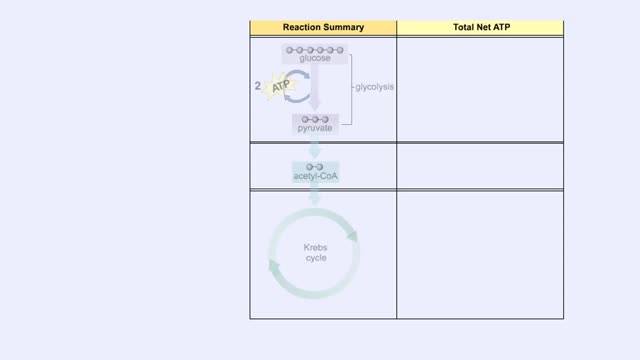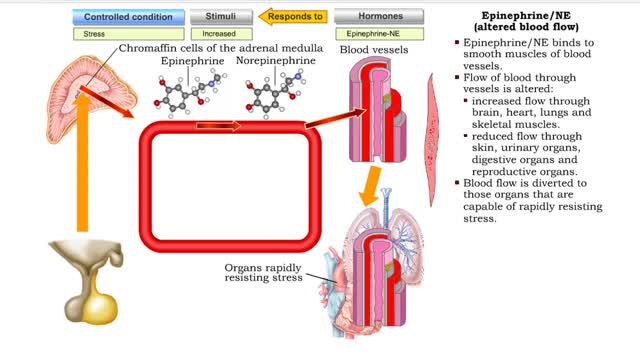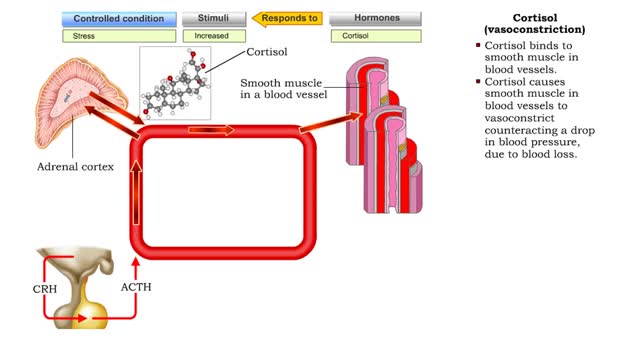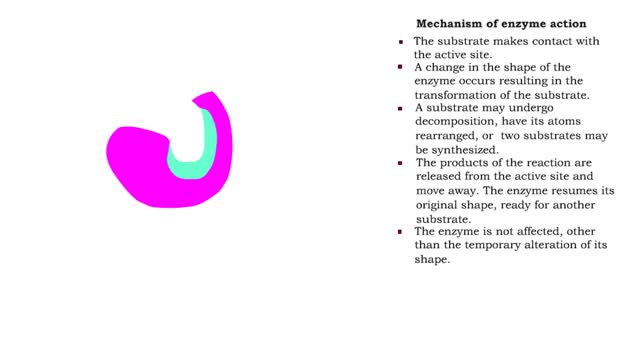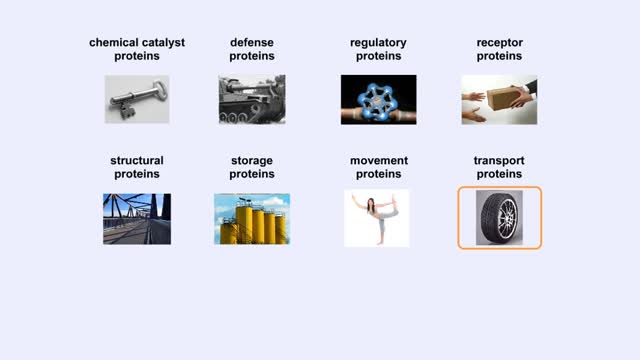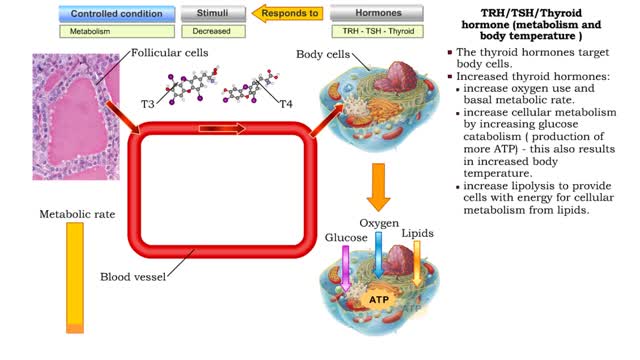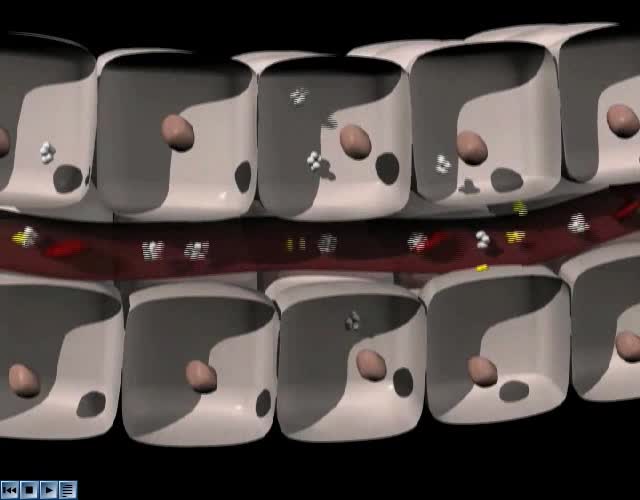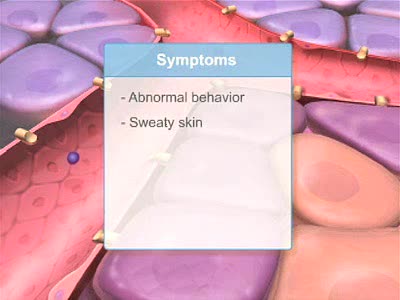Search Results
Results for: 'glucose-6-phosphate'
ETC Protein Complexes & Chemiosmosis (Total ATP Production and ATP Synthase)
By: HWC, Views: 9681
You will notice that FADH2 donates two electrons further downstream than NADH. This results in only two protons being pumped across the inner membrane. The final electron acceptor for these transported electrons is oxygen. Oxygen receives these electrons, plus protons from the aqueous matrix. ...
Epinephrine/NE (heart rate, altered blood flow, glycogenolysis & bronchodilation)
By: HWC, Views: 9813
• Stressors trigger increased sympathetic stimulation from the hypothalamus to the chromaffin cells of the adrenal medulla. • This causes the immediate release of epinephrine and norepinephrine (NE). • Epinephrine/NE binds to the cardiac muscles of the heart. • Cardiac muscle cells ...
Cortisol (protein catabolism, gluconeogenesis, vasoconstriction & anti-inflammation)
By: HWC, Views: 9670
• Stressors stimulate production of hypothalamic releasing hormones, corticotropin releasing hormone, hormone (CRH) and adrenocorticotropic hormone (ACTH) stimulate. • These hormones promote increased production of 1 cortisol from the zona fasciculata cells of the adrenal cortex. • Cort...
By: HWC, Views: 9781
■ The substrate makes contact with the active site. ■ A change in the shape of the enzyme occurs resulting in the transformation of the substrate. ■ A substrate may undergo decomposition, have its atoms rearranged, or two substrates may be synthesized. ■ The products of the reaction...
How proteins function? How do proteins work?
By: HWC, Views: 9606
How proteins function is really about how proteins "do work" in cells. How do proteins work? Let's start thinking about protein function by looking at something important to you: your hair. Keratin is a structural protein that is composed of 2 intertwined or helical strands. Keratin is also f...
By: HWC, Views: 9529
Thyroid hormone production • A decline in metabolic rate caused by increased metabolic need or physical exertion stimulates the production of thyrotropin hormone releasing (TRH) hormone from the cells of the hypothalamus. • Thyrotropin hormone releasing hormone targets the thyrotrophic ce...
By: Administrator, Views: 14195
Hypoglycemia, also known as low blood sugar, is when blood sugar decreases to below normal levels. This may result in a variety of symptoms including clumsiness, trouble talking, confusion, loss of consciousness, seizures or death. A feeling of hunger, sweating, shakiness and weakness may also be...
By: Administrator, Views: 13116
Hyposecretion or inadequate use of insulin may result in diabetes mellitus (DM). Hypersecretion of insulin may result in hyperinsulinism. Diabetes mellitus is the most common endocrine system disorder of childhood. Symptoms include: Polyuria Polydipsia Polyphagia Management of DM durin...
By: Administrator, Views: 14112
The islets of Langerhans are composed of three major types of cells: Alpha cells secrete glucagon, elevating blood sugar. Beta cells secrete insulin, maintaining normal blood sugar. Delta cells secrete somatostatin, which suppresses release of glucagon and insulin. Hyposecretion or inadequa...
Advertisement



